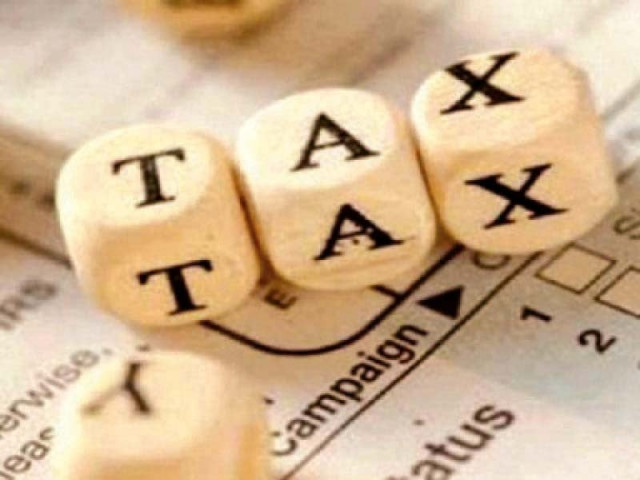Revenue shortfall to be met with more taxes
IMF releases staff level report on state of economy

Pakistan has committed with the International Monetary Fund to further increase gas prices before February 15th -- third raise in one year -- and also stands ready to impose additional Rs18 billion per month taxes including Rs5 per kilogram levy on sugar.
The additional taxes, having an annual impact of Rs216 billion, would be imposed only if the government’s income from the Federal Board of Revenue and other sources falls short of the agreed targets, according to a report that the IMF released on Saturday. Caretaker Finance Minister Dr Shamshad Akhtar has given the commitments to the IMF.
The report also disclosed that the caretaker government had missed the primary budget surplus target of the first quarter of the fiscal year. The IMF board had to give a waiver on this key performance criterion to make Pakistan eligible for the $706 million loan tranche.
Pakistan would issue a notification of the December 2023 semi-annual gas tariff adjustment determination by February 15, 2024, according to the staff level report. This is the third gas price increase that would be enforced in the past one year.
In November last year, the caretaker government had increased the gas prices by 1,100%, according to the Pakistan Bureau of Statistics. The energy ministry claims that the average increase was 172%.
Despite implementing two increases, circular debt in the gas sector has jumped to over Rs3 trillion as of Nov-end -- an addition of Rs938 billion in just five months (Jul-Nov) 2023.
The interim government has committed that the Feb price increase would include maintaining the current progressive slab structure for domestic consumers as well as not disturbing the protection cover enjoyed by the most vulnerable household consumers.
However, the caretaker government has apparently misguided the IMF that the most vulnerable gas consumers were protected from the November 2023 increase. The PBS weekly report showed that the country’s poorest segment earning Rs17,000 per month also faced the 1,108% increase in prices.
Read: IMF warns of risks to economy despite stabilisation
The IMF in its report admitted that the November gas price increase will add to the headline inflation in coming months. It has adjusted the inflation forecast for the next fiscal year from 7% to 9%. For this fiscal year, the IMF has set the inflation projection at 24%.
Pakistan has also committed with the IMF that it would reduce large preferential cross-subsidies across industrial and commercial users, and further disincentivize captive gas usage.
The pricing structure for non-domestic consumers will continue to be refined via semiannual notifications, including for the December 2023 determination, with the goal of directing scarce resources to more efficient assets, phasing out captive power in the near term, and transitioning captive power users to the electricity grid, stated the report.
Pakistan assured the IMF that the gas prices for captive power users will be increased where network distribution and reliability are present. The captive power users having no access to grid would be given one year for the transition to the electricity grid, at which point the prices will be increased to the RLNG-equivalent, according to the assurance to the IMF.
The finance minister further assured the IMF that in order to bring the use of captive power generation to a conclusive end by Jan 2025, the government would announce a plan to make the use of this generation uneconomic by March-end 2024.
Possibility of a mini-budget
Pakistan has committed with the IMF that it stands ready to take revenue measures equal to Rs18 billion per month provided the revenue collection of the FBR falls short of the monthly targets. The annual impact of the measures would be Rs216 billion but these would trigger only when there is shortfall in revenues.
The IMF said that Pakistan remains committed to achieve the primary budget surplus of Rs401 billion during the fiscal year but “this requires some additional effort”. It further stated that “should revenue fall short, the authorities have identified several contingent measures which can be adopted”.
The caretaker government has assured the IMF that “should cumulative monthly revenue significantly underperform we will implement selected measures”. The additional measures include raising the GST rate for textiles and leathers tier-1 from its reduced rate of 15% to the standard rate of 18% to collect additional Rs1 billion per month, or Rs12 billion per annum.
The caretaker government has also promised that it would implement a federal excise duty of Rs5 per kilogram on sugar to collect additional Rs8 billion per month, or Rs96 billion annually.
Read: Talks with IMF to begin soon
The government has also committed that it will increase advance income tax on the import of machinery by 1% to collect Rs2 billion per month. Dr Shamshad Akhtar stands ready to increase advance income tax on the import of raw materials by industries by 0.5% to collect Rs2 billion per month additional.
Similarly, the government has committed to increase advance income tax on the import of raw materials by commercial importers by 1% to collect Rs1 billion per month. It has also promised to increase withholding tax on supplies by 1% for Rs1 billion per month revenue and to increase withholding tax on services by 1% to collect Rs1.5 billion per month. Lastly, the government has promised to increase withholding tax on contracts by 1% to collect additional Rs1.5 billion per month, or Rs18 billion per annum.
Innovative budget accounting
The IMF has not accepted the finance ministry’s innovative budget accounting to artificially show less than actual budget deficit in the first quarter of this fiscal year. To neutralise the impact of creative accounting, the IMF adjusted the primary surplus target from Rs87 billion to Rs389 billion, which the government could not meet, showed the report.
The IMF board gave a waiver for missing the primary surplus target, which remained at Rs376 billion, according to the report.
The caretaker government has also clarified its position on creative accounting in these words. “The general government primary surplus in FY24Q1 was 0.4% of GDP, in line with initial expectations. That said, part of this additional primary surplus was due to technical delays in releasing power subsidies of Rs72 billion, which were registered in early October. We also faced delays in the expenditure of PSDP; while a total of Rs137 billion was released, only Rs41 billion was spent in FY24Q1.”



















COMMENTS
Comments are moderated and generally will be posted if they are on-topic and not abusive.
For more information, please see our Comments FAQ